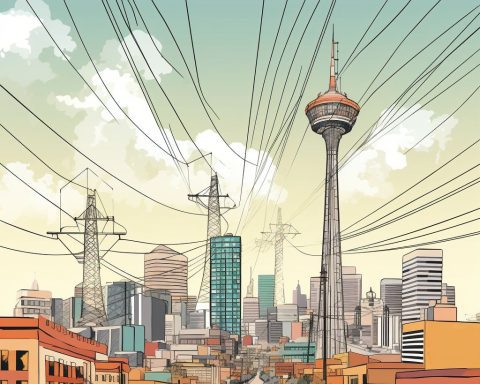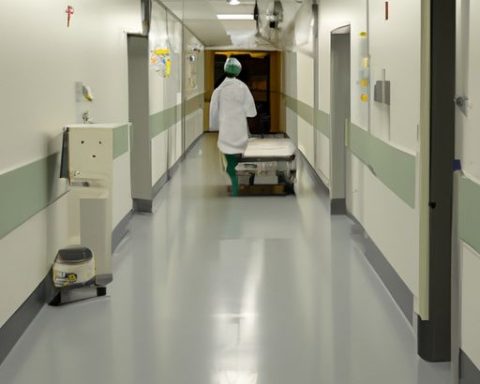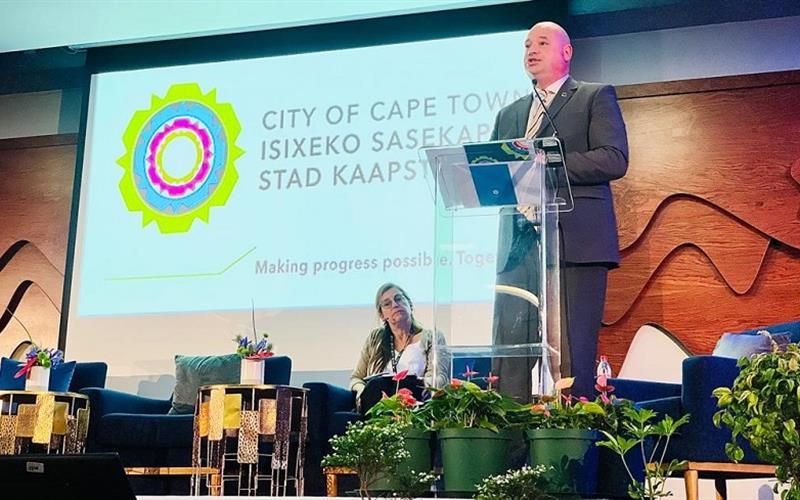Operation Vulindlela is a collaborative effort between the Presidency and National Treasury to fast-track the implementation of 35 key reforms aimed at boosting economic growth and creating employment opportunities in South Africa. In a recent progress report, the initiative highlights developments across sectors including energy, logistics, digital communications, and visa regulations.
Empowering Energy
Under Operation Vulindlela, the National Energy Crisis Committee (NECOM) is responsible for revamping the energy sector to ensure short-term load-shedding reduction and long-term energy security. The implementation of key milestones, such as amending the Electricity Regulation Act, expediting the procurement of new generation capacity, and facilitating municipalities’ power procurement, have improved the energy sector’s performance.
The unbundling of Eskom into separate entities for generation, transmission, and distribution has made significant progress, with the National Transmission Company of South Africa (NTCSA) nearing operationalization. Additionally, the Eskom Debt Relief Bill provides R254 billion in debt relief to ease the utility’s balance sheet pressure, subject to rigorous conditions.
The Electricity Regulation Amendment Bill seeks to establish a competitive electricity market, while tax incentives for small-scale embedded generation, like rooftop solar, have spurred investment.
Revamping Freight Logistics
Operation Vulindlela is collaborating with various departments to finalize a freight logistics roadmap addressing the poor performance of ports and rail networks. Key developments include the establishment of an Infrastructure Manager within Transnet Freight Rail (TFR), enabling third-party access to the core rail network, and partnerships with private terminal operators to improve container terminal performance.
The Economic Regulation of Transport Bill has passed in the National Assembly, establishing a transport economic regulator to supervise third-party rail network access, awaiting concurrence from the National Council of Provinces (NCOP).
Ensuring Water Security
The Department of Water and Sanitation is implementing reforms to improve water quality and supply security. Key achievements include public consultation on the National Water Infrastructure Agency Bill and Raw Water Pricing Strategy, and increased processing rates for water use license applications.
The reinstated Blue Drop, Green Drop, and No Drop water quality monitoring system will provide a thorough assessment of municipal water infrastructure. Moreover, the Water Partnerships Office (WPO) in the Development Bank of South Africa (DBSA) supports private sector initiatives in the water sector.
Advancing Digital Communications
The recent spectrum auction’s successful completion has led to several reforms, such as the gazetting of the Rapid Deployment Policy and Policy Direction, which facilitates telecommunications infrastructure rollout. The Department of Communications and Digital Technologies has proposed a Next Generation Radio Frequency Spectrum Policy, which aims to establish a secondary market for spectrum trading and integrate small businesses into the digital economy, among other objectives. Additionally, the Cabinet has approved the analogue transmission switch-off date.
Streamlining Visa Reforms
Operation Vulindlela is collaborating with the Department of Home Affairs to revamp the work visa system, addressing inefficiencies and restrictive conditions that prevent businesses from attracting skills and investment. The implementation plan, released by the Minister of Home Affairs, outlines significant changes such as a trusted employer scheme for qualifying companies, streamlined application requirements, a points-based system for Critical Skills and General Work Visas, and new visa categories for remote workers and start-ups.
The progress report on Operation Vulindlela shows the South African government’s commitment to implementing structural reforms across various sectors. As these priority reforms continue to progress, South Africa anticipates a positive impact on economic growth and job creation.












